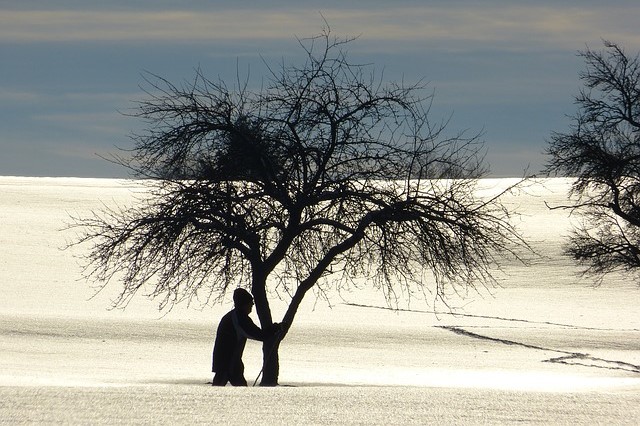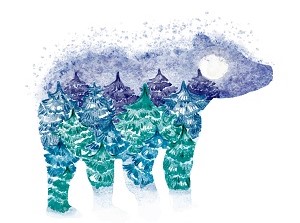Cabin fever is an illness where a person feels restless, depressed, sad, and anxious. According to phobias.about.com, “Some experts believe that cabin fever is a sort of syndrome, while others feel that it is linked to such disorders as seasonal affective disorder and claustrophobia. Cabin fever is ultimately rooted in intense isolation, which may reach the level of a specific phobia.”
Regardless of the disagreements regarding the nature of the illness, it is definitely misconstrued in the media. One of the films showing someone with cabin fever is Stephen King’s The Shining, where the main character slowly disintegrates into a killer who wants to kill his family. “Of course, The Shining is fiction. Most people with cabin fever do not become violent or unstable. Domestic violence may become more likely during extended periods of isolation, but only in those who have a history of instability or aggression.
However, many of the most common symptoms of cabin fever do mirror some of Jack’s less-violent tendencies. Each person is different, and not everyone suffering from cabin fever will experience exactly the same symptoms”
Being in an enclosed space can cause various symptoms. Lethargy is one of them. Restlessness is another symptom along with anxiety. A feeling of irritability and hopelessness is considered a symptom of cabin fever. Stress comes with the anxiety and depression.
Depression makes it sometimes very hard to concentrate and restlessness relates to difficulty in concentrating. Depression, from my experience with it, also comes with a fluctuating weight. You gain weight. Then you lose it. And the cycle continues. Part of the weight gain also relates to lacking motivation to move or do much. A depressed person naps often and has struggle staying awake, which further adds to weight gain.
There is a lot you can do to recover from cabin fever. “Like any mental health condition, cabin fever is best treated with the assistance of a therapist or other trained mental health professional. However, if your symptoms are relatively mild, taking active steps to combat your feelings may be enough to help you feel better.”
First, get out of the location you are stuck in and change scenery. “If you are snowbound, this may not always be possible. But if you are able to go outside, even for a short time, take advantage of that opportunity. Exposure to daylight can help regulate the body’s natural cycles, and exercise releases endorphins, creating a natural high. Even a quick stroll can help you feel better quickly. If you are not able to leave the house at all, get close to a window and start moving around.”
Next, try to set goals to keep yourself motivated. Take advantage of being in the place you are in. “Set daily and weekly goals, and track your progress toward completion. Make sure that your goals are reasonable, and reward yourself for meeting each milestone.” Try to accomplish something every day. The goals need not be grand.






